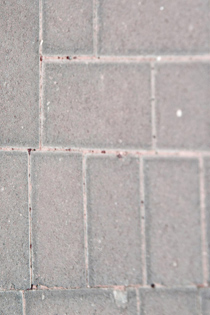France 2022 : un paysage politique
Jacques Lévy | 23.05.2022This special issue is based on maps and analyses of the French presidential election of 2022. [...]

A Traverse gathers related articles addressing various debate topics.
This special issue is based on maps and analyses of the French presidential election of 2022. [...]
Voici une sélection des cartes publiées dans Le Grand Continent le 13 avril 2022 qui nous a autorisés à les republier. S’y ajoutent de nouvelles cartes réalisées après le second tour. Dans les deux cas, elles ont été réalisées par le pôle Cartographie de la chaire Intelligence spatiale de l’UPHF (Jacques Lévy, Sébastien Piantoni et Justine Richelle) avec [...]
This paper interrogates the social and spatial consequences of lock-down and “barrier” measures for newcomers and precarious foreigners in the city of Geneva. Linking these measures to the question of urban hospitality, the article documents the paradoxical transformations of the “hospitable milieux” that usually offer newcomers — and established “undocumented” migrants — the possibility to “take place” in the city and to stay there somewhat poorly. Addressing the case of “domestic workers” as well as “low-threshold” shelters and the [...]
Based on a close scrutiny of Michel Foucault's interview published in the very first issue of Hérodote, a journal dedicated to geopolitical approaches founded by Yves Lacoste, this article unfolds, thanks to the analysis of spatial metaphors, the conceptions and functions of space for the philosopher as well as for geographers. This symmetrical reading enlightens a subtle system of similarities, between Time and Space (two categories rejected by Foucault and the geographers alike, as they abandon grand concepts in [...]
The international cultural center of Cerisy-la-Salle (Normandy, France) has been organizing for many years residential, 7-day long conferences from the end of April till the end of September. Participants are hosted in the castle and the adjacent buildings. The author describes his participation to one of those conferences in order to make more concrete what he means by « enchantment », a notion he has been trying to ground for years on the basis of ethnographic accounts. [...]
This article aims to highlight some specific contributions of the notion of rhythm to apprehend dynamics on memory within an urban environment. In particular, it points out how rhythm constitutes an effective operator for thinking about the capacity of certain urban forms to favor or hinder the experience of “being present together” (Boullier, 2010) and, consequently, the possibility of remembering together. Starting from the description of a moment of blocking that occurred during an empirical investigation, the article shows [...]
The aim is to grasp the question of rhythms through an anthropological approach to the experience of urban time as it has emerged from various surveys conducted in Paris and its metropolitan region. Questioning the modalities by which certain "inhabitants" (residents and temporary residents) describe their experiences from a temporal point of view, reveals a set of elements capable of characterizing, qualifying and giving substance to the concrete and/or sensitive modalities through which an experience of time takes shape [...]
The purpose of this article is to explore the reenchantment of a church in a South African township. Effervescence of entertainment while crossing through worships appears as a new source of holiness. Present seems in that to substitute to the past as an authority able to legitimate the religious. That’s why this transcendence goes beyond the traditional antinomy between holiness and profane, inviting to rethink religion in modern times [...]
Avec l’apport du rhizome Chôros. Presque 40 ans après, imaginons ce que serait le carrefour Mabillon sous la plume de Perec : “19 mai 2020. 3, 4, non 5 SUV défilent, les conducteurs aux visages masqués, au passage 3 piétons attendent le feu, chacun à distance. A chaque arrêt, la même appréhension : où se place-t-on [...]
The Covid-19 pandemic as a collective experience has brought certain minority experiences closer to the majority’s. The most obvious example have been the 2020 lockdowns, which has suddendly given able-bodied individuals the experience of the homeboundedness known to crips. Some other parallels constitute an unexpected positive impact of the pandemic, which has generally increased the level of solidarity in a common ordeal. Nevertheless, most pre-pandemic social vulnerabilities have perpetuated and even worsened. From proven correlations between one’s level of [...]